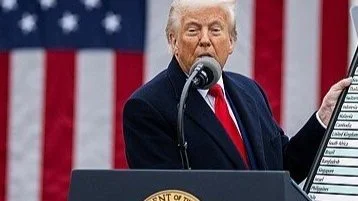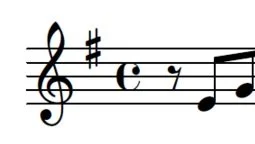Are Trump's tariffs really the “art of the deal?” They seem more like the “art of I don’t know what I’m doing”
Confronted by reality, Trump blinked yesterday and put a 90-day pause on all but China’s draconian tariff increases, setting off a history-making relief rally in the stock market. After several days of non-stop selling costing investors trillions of dollars, the market closed higher yesterday, with stocks up anywhere from seven to 12 percent, depending on which index you’re following.
The president must have been (or should have been, anyway) dismayed while stocks plunged during the few days before this latest round of tariffs were to kick in. Through it all he put on a bold front, telling us we’d have to endure some pain, that we were like a patient undergoing surgery and that we’d recover healthier than ever.
But when it came down to it, a plunging stock market, shedding trillions of dollars of value ($9.6 trillion since Inauguration Day according to MarketWatch), took the starch out of President Trump.
You might recall that Trump often used the stock market as a proxy for his success as president during his first term. In his January 20, 2018, State of the Union speech, Trump noted, “the stock market has smashed one record after another, gaining $8 trillion, and more.” That same month he said “we’ve gained in market value, in the stock market, $8 trillion since Election Day.”
Even when he was running for re-election, Trump didn’t let up on his need to use the stock market as a report card of sorts. He warned voters prior to the 2020 election that stocks would “disintegrate” if Biden won. As it turned out, the S & P 500 gained about 55% during Biden’s tenure in the White House. Though short of Trump’s 67% return, Biden’s market, enduring as it did the post-Covid mini-crash, was respectable enough.
So, even though “disintegrate” never applied to Biden’s market, it certainly described what was going on in the market as Trump’s tariffs were set to start up this week. The multi-trillion dollar washout on Wall Street was just too much to watch for a president who so often linked his success to the fortunes of the stock market. No doubt the entreaties he was getting from fellow Republicans, along with the public distaste for tariffs by Trump’s chum Elon Musk, had something to do with today’s retreat from most of his tariffs, but ultimately, Trump didn’t want to taste the crow he’d be eating if his beloved stock market continued its free fall when the tariffs created their widely predicted economic bloodshed and increased chances of a recession.
Instead of bragging about trillions of dollars of value added to the upside since his election, he’d be held accountable for the trillions of dollars of losses incurred by this stupidly thought out tariff exercise, an endeavor that was accelerated by the shaky counsel Trump has been getting from his trade advisors.
I don’t agree with Elon Musk on a lot of things, but I do appreciate his accurate assessment of Peter Navarro, Trump’s top tariff advisor, as being “dumber than a sack of bricks.” The goofy chart (you can see part of it in the photo above) and formula that Navarro’s team came up with to justify this tariff blitz have been lampooned throughout the community of economists. The center-right American Enterprise Institute panned it, calling the formula “weakly grounded.” Also from the center-right, the Tax Foundation called the formula “nonsense.”
You’d have to think that the egomaniacal Trump was plenty beleaguered by the political, intellectual and financial market pushbacks he was getting during the past few days. They eventually had their effect, switching him off from the boastfully overconfident proponent of his tariffs to the man who abruptly pulled the plug on many of them.
No doubt we’ll hear some noises from the administration that all of this was part of some strategic plan, but that claim rings hollow when you consider the consternation and chaos that brought us to this point. Even Trump’s allies in Congress are confused about what’s going on.
Creating that kind of craziness is not the proper function of leadership.
Nor is it an evocation of Trump’s oft-touted mastery of “the art of the deal.” This travesty of policy based on bad analysis and advice is more like the “art of not knowing what I’m doing.”
I hope Trump will be politically weakened by this episode and that more Republicans who know better — but hadn’t been speaking out against this nonsense — will surface. More to the point, I hope some of those Republicans come from South Dakota.
John Tsitrian is a businessman and writer from the Black Hills. He was a weekly columnist for the Rapid City Journal for 20 years. His articles and commentary have also appeared in The Los Angeles Times, The Denver Post and The Omaha World-Herald. Tsitrian served in the Marines for three years (1966-69), including a 13-month tour of duty as a radioman in Vietnam. Republish with permission.
Photo: public domain, wikimedia commons







